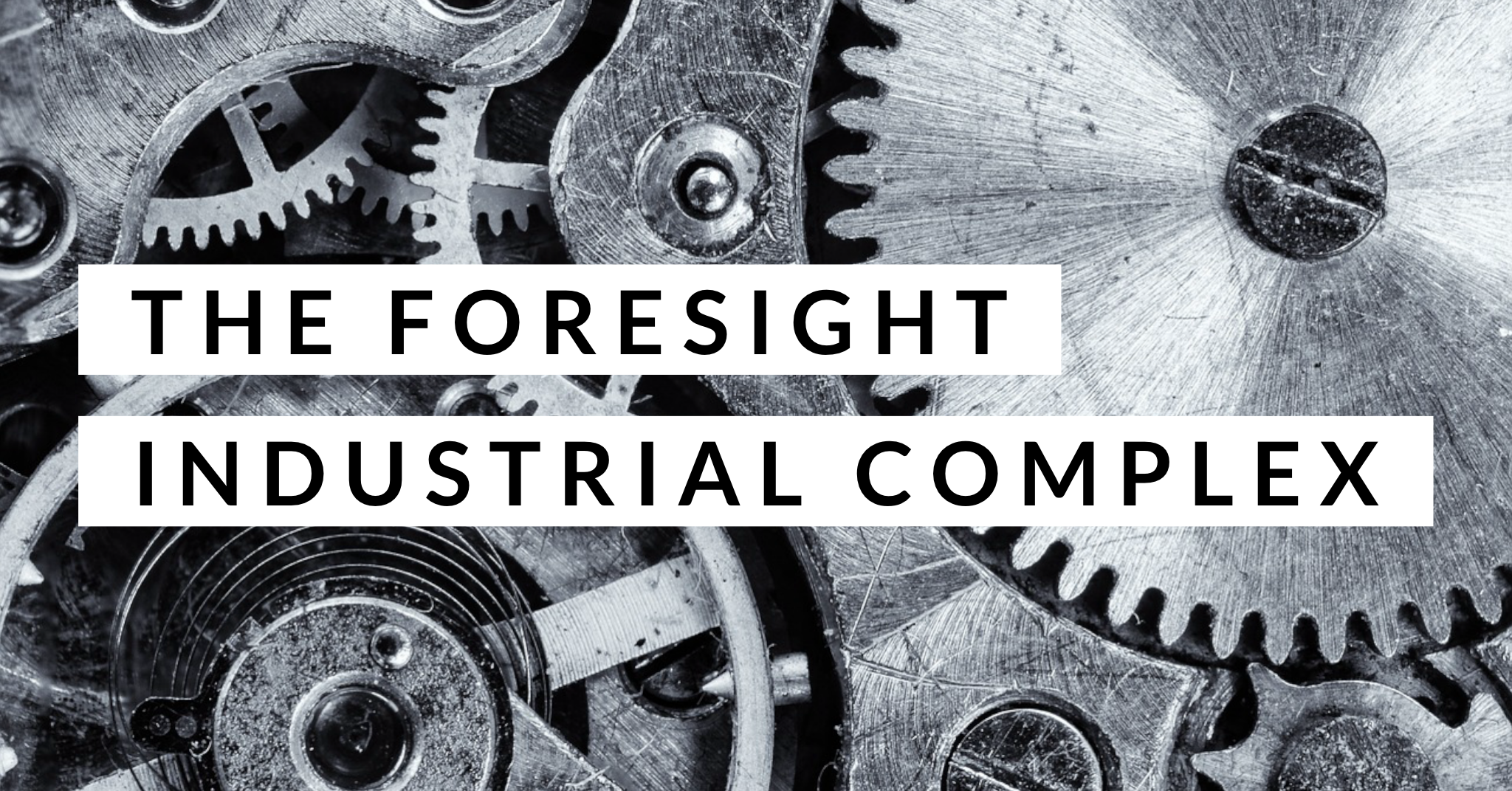The Foresight Industrial Complex
Futurists and experts often operate in a mutually reinforcing cycle: experts seek futurists to bolster credibility, while futurists lean on experts to validate authority. Positioned initially as disruptors, innovators frequently find their ideas absorbed into what could be termed the Foresight Industrial Complex. This system often prioritizes signaling alignment with progressive values over critically exploring the future.
Over the last couple of years, in future studies, I’ve noticed recurring themes—such as decolonization, disruption, and what I call Inclusion Ideologies—that dominate the discourse. While these concepts are often presented as tools for progress, they frequently serve as symbolic markers of conformity, sidelining deeper engagement.
Decolonization is invoked to challenge colonial power structures and elevate marginalized voices, a vital aim. However, within foresight, it often becomes a rhetorical shorthand rather than a substantive engagement with systemic realities that exclude contrasting perspectives, reducing complex issues to oversimplified narratives.
Disruption is celebrated as a force for innovation but is often uncritically romanticized. This ignores the inequities and systemic instability disruption can exacerbate, perpetuating the same power imbalances it aims to dismantle.
Inclusion Ideologies, while essential in principle, risk becoming performative checklists that obscure deeper structural inequities that exclude conservative perspectives. By failing to interrogate their limitations, foresight can reinforce blind spots under the guise of progress.
This reliance on symbolic concepts fosters shallow engagement and bias. For example, during an online futures seminar, the rise of evangelical Christianity in Africa was framed solely as a threat to LGBTQ rights, with no acknowledgment of the faith’s diverse contributions to education, healthcare, and community development. This narrow framing illustrates how industrial foresight often reduces complex realities to oversimplified narratives.
To achieve true inclusivity, foresight must welcome perspectives that challenge dominant paradigms, including voices from faith-based groups often dismissed as regressive. Evangelical Christians, for instance, can contribute ethical depth, long-term community-focused thinking, and alternative frameworks for envisioning the future. Including these perspectives enriches foresight without undermining equity and justice.
Ultimately, foresight must move beyond signaling virtue and critically examine its own assumptions. Concepts like decolonization, disruption, and Inclusion Ideologies should be rigorously tested and reimagined when they fall short. By embracing intellectual humility and fostering diverse perspectives, foresight can reclaim its transformative potential and engage deeply with the complexities of our shared future.

